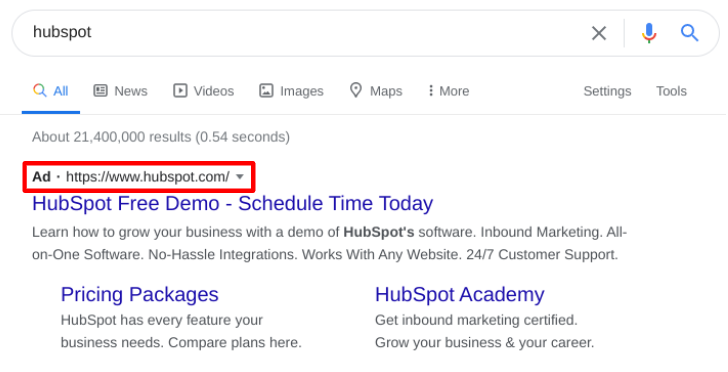Keyword Research for B2B: The difference between SEO and PPC
Unsure where to start with search engines? Learn the difference between SEO and PPC, and understand how to prioritise keywords for a B2B audience here!

With 67,000 searches made every second on Google, understanding how to rank highly on search engines is vital in increasing your brand awareness and securing leads.
But, trying to be in the right place at the right time for your ideal customer on search engines can be difficult. Yet, this can be achieved by researching and targeting specific keywords.
Although you may target keywords, there are two ways to do this: SEO, search engine optimisation, or PPC, pay-per-click campaigns. And, while both offer vital brand awareness for your company, what is the difference between SEO and PPC, and can they work together? Let’s find out.
How does SEO work for B2B?
At its core, SEO helps specific, relevant pages on your website rank higher in search engines, such as Google and Bing.
While there are lots of sub-sections of SEO, in this instance, we will be discussing content SEO and technical SEO. Content SEO focuses on the keyword density within the copy, whereas technical SEO focuses on how search engines read the code and content of your website and subsequent pages.
Before writing any new content, a vital part in starting a new campaign is completing a website audit. Our SEO expert, Pamela Czerniecka, will talk to the clients to understand their focus by asking questions and investigating core results such as:
- What services or offers do they want to concentrate on?
- How is the client ranking organically?
- What keywords their competitors are targeting?
From here, our expert researches keywords to make sure your pieces are search engine friendly. To do this, they will research using tools such as Google Analytics, Google Search Console, and Ahrefs. As research shows, B2B buyers conduct up to 12 searches before engaging with a brand, hitting as many relevant keywords as possible is vital.
When developing new content for targeting campaigns, an SEO expert will set density targets for copywriters to hit a certain amount of specific keywords that will help your company hit brandings.~
Then, once the copy has been optimised, the technical SEO audit will require adding:
- Keywords in the titles and meta description. While having keywords in your content helps search engines to understand what is relevant content for the person searching, ultimately having keywords in the title and meta description will make it clear to search engines that your site is relevant and not spam.
- Any relevant tags. Again, to ensure your search engine understands what is relevant (and you can track relevant campaigns), including relevant tags will help your content to rank higher.
- Blog and pillar page links. While the pillar pages will need to be hidden from search engines in the alt-tags, in order for your search engine to understand that this is a viable page that should be prioritised for the reader, you will need to link to both internal and external pages.
By ensuring your website pages are both content and technically optimised, you will be clearly indicating to search engines that your pages offer high value to search engines. This, in turn, will make them rank higher.
Eager to learn more about Search Engine Optimisation?
How does PPC work for B2B?
PPC, or Pay-For-Click campaigns relate to the advertising on search engines. Most notably, this is on Google Ads.
Although PPC campaigns still require keyword research to ensure you’re targeting the right keywords that your persona will use, these are not organic results. These are paid campaigns that can last anywhere from a week to a quarter, or left on indefinitely depending on the keywords you’re trying to target.
So, when a person searches for something, Google typically saves the top 3 spaces for PPC or paid ads. You’ve probably noticed that in some of your searches, ‘Ad’ is next to the title, like this one below.

As the name suggests, these ads are paid for per click. So until a potential client clicks on your ad, you will not pay anything for this advertising space.
The price of this ad space is determined by an auction system, meaning that the company that bids the highest for their relevant keywords will get the highest spot in the search engine. Then, the second-highest bid will be placed in the second position, and so on.
When starting a new campaign, our Paid Media Manager, Liam Fleming, will do some keyword competitor research to find out:
- What keywords your competitors are ranking highly on.
- How many clicks they’re receiving.
- How much they’re paying for these keywords.
To carry out this keyword research, our Paid Media Manager typically uses tools such as Google Keyword Planner and Google Trends to discover which keywords are vital to our client's campaigns.
While there is the common misconception that PPC campaigns are only effective in a B2C environment. Yet, although there is a difference between SEO and PPC when selling to a business rather than a customer, ultimately a buyer in a B2B scenario is still a person. When building your campaign, it's important to still make it holistic and as human as possible
Despite the difference between SEO and PPC, can they work together?
The short answer - yes.
While the difference between SEO and PPC campaigns seem minimal on the surface, as you dive deeper, they can both offer different but valuable opportunities for growth for your company or specific campaign.
Although ensuring your content is search engine friendly is vital, in order to rank higher for some keywords or if you are promoting a short-term offer or event, a PPC campaign can help to promote your business.
Research shows that PPC leads bring 50% more conversion than clicks from an organic result. So if you have a new campaign you want to push or a time-sensitive offer, a PPC campaign could be a good way to get short term results and transform your new leads into long-term customers.
By building a multi-faceted SEO & PPC campaign, this will help to rank your content higher on search engines and offer interesting offers to your ideal clients to transform them into valued customers.
While researching and understanding your keywords is vital for both of your campaigns, ultimately over spamming them within your content can lead to keyword cannibalisation for your SEO efforts. This can occur if you have too many of the same keywords throughout your website, a search engine won’t know what to prioritise, which makes your SEO efforts futile. In turn, this could mean you’re over spending in your PPC to push certain keywords.
When building your campaign, it’s not just keyword cannibalisation you need to be aware of. You should also need to make sure you’re:
- Hiding all landing pages in the alt-tags. When a search engine trawls your page, having all landing pages and thank you pages hidden will ensure that no potential clients will bypass your offer or be taken to an irrelevant page on the website.
- Targeting specific keywords. While general search terms are useful, ultimately it is easier to get higher rankings for specific, targeted keywords that are relevant to your topic. Research around your campaign theme, discover any keywords that might have a lower search rate but a higher chance of landing a client, and see if you can build any PPC campaigns for those searches.
- Not overspending on your ads. When developing your PPC campaign, you need to know your worth. If this is a keyword you’re already ranking 1st for organically, having a PPC campaign for that keyword may not be needed at all. In order to combat this, add a CPA, or Cost Per Action, limit so you don’t end up overspending.
The key(words) to growing your company
Ultimately, in order to grow your company, SEO and PPC campaigns offer vital support to rank in search engines.
Although there are key differences between SEO and PPC, they both offer value to your business depending on what you are trying to promote and achieve. If you are offering a short-term webinar or asset, a PPC campaign may be beneficial to get your organisation out there. But, if the content has more longevity, targeting specific keywords may help improve your ranking in the long term.
In both of your SEO and PPC campaigns, it’s important to thoroughly research your keywords, targeting specific, low search keywords can help increase revenue and drive traffic to your site.

